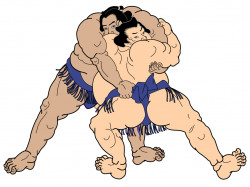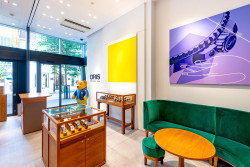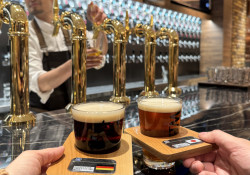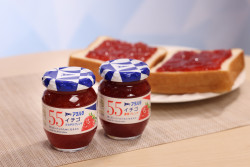
August 13, 2009
The Other Expatriates
Joseph Hincks learns the pleasures of exile from members of Tokyo's lesser-known foreign communities
By Metropolis
Originally published on metropolis.co.jp on August 2009

Photo by Benjamin Parks
Neungsiam (39, Phra Nakhon Si Ayutthaya, Thailand)
At AJ gym in Shinjuku, the Japanese boxers are on the heavy bags; I am, as usual, jumping rope. They look at me skeptically, then at each other.
“Jumping! Good!” Neungsiam says in English. He slaps my thighs with the back of a calloused hand.
“Weak!” he exclaims. “Tired legs. Knockout. Morning running?”
I sew the sequence of words together. “Yes,” I reply. “Morning running.”
“Morning sex?”
I shake my head.
“Chak-waa (masturbation)?”
I shake my head again.
He laughs, “Chak-waa yuh yuh!”
“Kru (teacher)?” I ask, but he’s not listening, just repeating “chak-waa” and shaking his head incredulously.
“Kru Neung?” I try again. “What am I doing today?”
“Shadow! Shadow!” he says.
“Shadow,” I affirm, relieved.
At the humble age of 22, Neungsiam became champion of Ratchadamnoen Stadium, the oldest and most revered Muay Thai venue in Bangkok. By 32, with over 250 fights under his belt, the martial artist was already considering his retirement.
“In Thailand, I was always wearing a hat, but sometimes people recognized me anyway. Taxi drivers ask, ‘Is that Neungsiam?’ ‘Hmmm, I’m not him!’ It’s a bit tiring to always be recognized.”

Photo by Benjamin Parks
I ask Neung what else he remembers about his kru in Thailand.
“Very strict!” he says with a laugh. “Boxing is scary if you think with your head—he taught me that everything has to be in the heart.” He pounds his chest. “This is called jai. If you get hurt and it shows on your face, you’re vulnerable. But if your jai is strong, then you can keep on fighting.” He thrusts his chin forward across the steaming plates of pad thai, breaking into a wide grin. “Like this!”
Becoming champion of Ratchadamnoen enabled Neung to buy a house for his parents, and the income he generates teaching Muay Thai in Japan ensures their financial stability. Neung’s girlfriend Yukari, the manager of a Chiba kickboxing club, explains that this is the case with many of the Thais boxing in Japan. “They come here for the money, for their families,” she says.
I ask why, with their relative affluence, so many Japanese students take up boxing. “Fear. Feelings of fear,” Neung answers, and Yukari concurs.
“A lot of Japanese people are weak on the inside,” she says. “They want to be stronger, they want to discipline themselves; you can really see the difference when you watch a fight between the two.”
How do these differences in motivation manifest in the ring?
“Japanese students train hard,” Neung puts in. “They tear their mitts to shreds on the bags, but come a fight, they get nervous. Japanese tend to think too much with the head. Their jai is not relaxed, but you can tell they’re thinking ‘Ganbaruuu! Ganbaruuuu!’”
And what’s next for Neungsiam? “He’s getting a bit old for boxing,” says Yukari, looking across at him affectionately. “He says once he finishes teaching, he wants to start a food service from a van.”
“Takoyaki!” Neung exclaims.
“He misses Thai food so he’s learnt to cook for himself.”
“Any other business plans, aside from takoyaki?” I ask.
“Hmm… curry?” Neung ventures, “Pee…” he calls, addressing the restaurant’s proprietor with the honorific “older sister” tag. “What do you think?”
“How about endorsing products, advertising?”
“No,” the waiter chips in, “You need to be more, well… good looking. Maybe if he were an Olympic athlete…”
“Hey!” says Neung, “I’ve been in a commercial before!”
“What for?”
“Fertilizer! That’s all you can advertise when you’re a boxer—fertilizer for trees, insecticides, maybe energy drinks,” Neung says laughing. “Not cool!”







